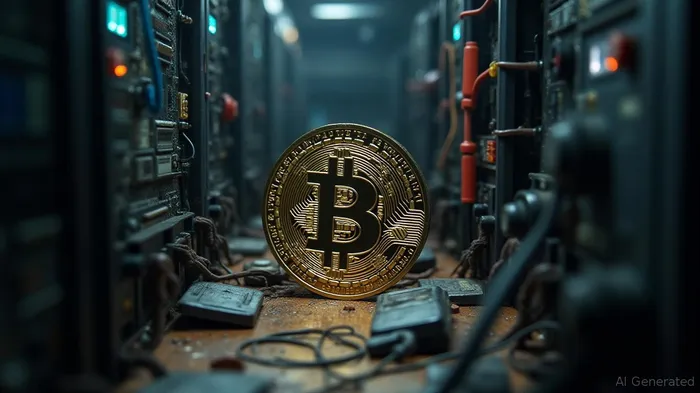Bitcoin Miners Face Revenue Squeeze as Transaction Fees Drop to 1% of Block Rewards
Bitcoin miners are currently facing a significant revenue squeeze as transaction fee rewards fall to their lowest levels since 2022. In June 2025, transaction fees accounted for less than 1% of total blockXYZ-- rewards, a stark decline from previous years. This reduction comes despite Bitcoin’s price trading comfortably above $100,000, highlighting a disconnect between market price and mining profitability. The primary source of miner income remains the block reward of 3.125 BTC per block, but the diminishing transaction fees mean miners earn less overall per block processed.
The drop in transaction fees is largely attributed to decreased network usage. The average Bitcoin transaction fee currently stands at approximately $1.45, maintaining a relatively low level throughout 2024 and 2025. This low fee environment is partly due to fewer transactions being processed per block, with occasional spikes driven by network events such as Bitcoin Ordinals, which temporarily increase transaction volume. However, these spikes have not been sufficient to sustain higher fee rewards for miners on a consistent basis.
The 2024 Bitcoin halving, which reduced block rewards from 6.25 BTC to 3.125 BTC, has compounded the financial pressures on miners. Historically, halvings lead to a reduction in miner revenue, which is typically offset by a subsequent rise in Bitcoin’s price over the following 12 to 18 months. However, the current cycle shows a lag in price appreciation relative to previous halvings, leaving miners in a challenging position. Despite BTC’s price gains, mining revenues remain near all-time lows, underscoring the importance of cost efficiency in mining operations.
Industry experts highlight that mining profitability increasingly depends on operational factors rather than Bitcoin’s market price alone. Miners who invest in state-of-the-art hardware and leverage renewable energy sources can sustain profitability despite volatile price movements. Efficient power consumption and competitive electricity costs are critical components that enable miners to weather market downturns and maintain resilient returns over time.
Prominent figures in the crypto space advocate for broader adoption of Bitcoin as a medium of exchange to increase network activity and transaction fees. This vision underscores the potential for higher transaction volumes to enhance miner revenues sustainably. Meanwhile, miners continue to adapt by optimizing their infrastructure and exploring innovative energy solutions to remain competitive in a tightening market.
Bitcoin miners are navigating a complex landscape marked by historically low transaction fee rewards and the aftermath of the 2024 halving. While Bitcoin’s price remains robust, the reduced fee income emphasizes the need for miners to focus on operational efficiency and cost management. Investments in advanced mining hardware and renewable energy are becoming essential strategies for long-term sustainability. As the network evolves, increased transaction adoption could provide relief, but for now, miners must optimize their cost structures to thrive in this challenging environment.

Quickly understand the history and background of various well-known coins
Latest Articles
Stay ahead of the market.
Get curated U.S. market news, insights and key dates delivered to your inbox.



Comments
No comments yet